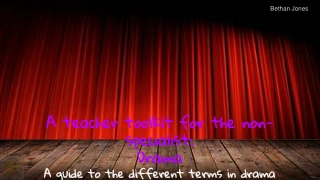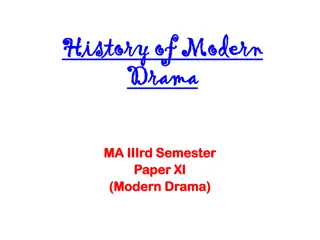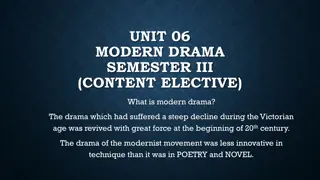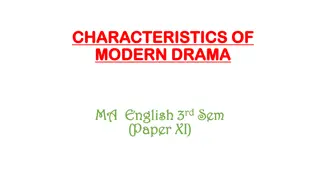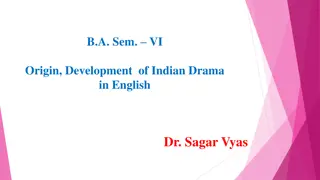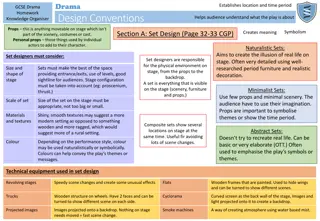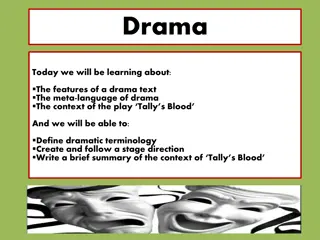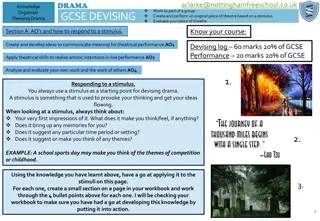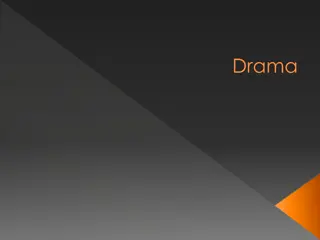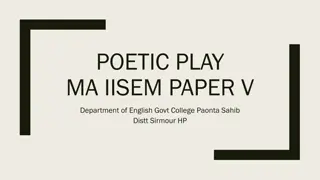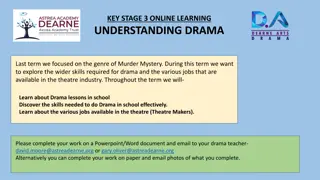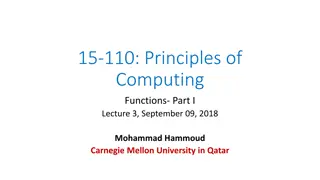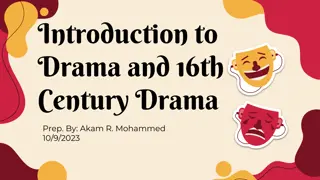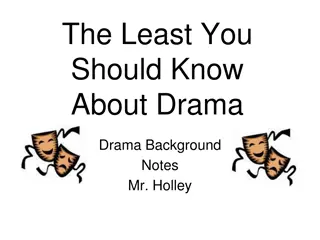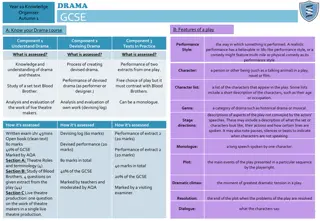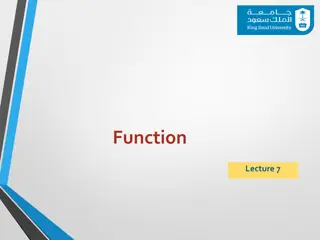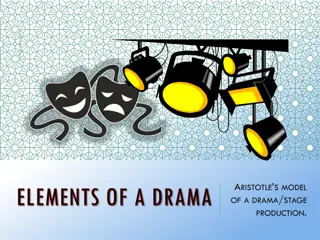Understanding the Functions and Elements of Drama in Year 7 Curriculum
Explore the functions and elements of drama with Year 7 students in this engaging lesson. Understand how drama educates, informs, entertains, promotes tolerance, and more. Dive into the key elements like script, plot, diction, characterization, actors, and stage. Learn about playwrights and categories of dramatists, including classical and modern playwrights like Hubert Ogunde, Wole Soyinka, and more.
Download Presentation

Please find below an Image/Link to download the presentation.
The content on the website is provided AS IS for your information and personal use only. It may not be sold, licensed, or shared on other websites without obtaining consent from the author. Download presentation by click this link. If you encounter any issues during the download, it is possible that the publisher has removed the file from their server.
E N D
Presentation Transcript
YEAR 7 FUNCTIONS AND ELEMENTS OF DRAMA
OBJECTIVES By the end of the lesson, the students should be able to; - Mention the functions of drama - Explain five functions of drama - List elements of drama - Discuss elements of drama
FUNCTIONS OF DRAMA EDUCATIVE: It educates people to be conscious of activities around them. INFORMATIVE: It serves as a means of communication which creates awareness and sensitizes people to understand themselves in the society. ENTERTAINMENT: It is an avenue to satisfy the yearning of the people when it comes to pleasure seeking. TOLERANCE: It helps people in tolerating themselves. THERAPEUTIC: It helps or enable patients to release tensions and also provides therapist with valuable information on and insight into the patient s state of mind. COOPERATION: Working together as a team can be easily achieved by watching or acting drama.
ELEMENTS OF DRAMA SCRIPT: It is a written text of a play. PLOT: This is the series of events which form the story of a play. (It is the story line) DICTION: It involves the choice and use of word in literature. CHARACTERIZATION: This is the way a playwright makes or depicts characters in a book or play to make them appear too well. ACTOR: It is a male personality who performs on stage. ACTRESSES: It is a woman that performs the role of an actor on stage. STAGE: This is a raised platform in which an action takes place. COSTUME: This involve all the garments and accessories the performer uses on stage. MAKE-UP: It is the act of using artificial substance to change the appearance of the actor to suit his targeted character.
EVALUATION 1 List six functions of drama List nine elements of drama Explain five elements of drama
YEAR 7 PLAYWRIGHTS/DRAMATISTS These two words are synonymous as they both imply the same meaning PLAYWRIGHT/DRAMATIST is being referred to as a person who writes dramatist literature or drama. (i.e scripted drama) These works are usually written to be performed in front of a live audience by actors/actress.
Categories of Dramatists/Playwrights Classical: These were the earliest playwrights in Western literature with surviving works. Modern/Contemporary: These are modern time playwrights, some of whom have made some impacts in the literary world. EXAMPLES OF PLAYWRIGHTS 1. Hubert Ogunde(late) 2. Ola Rotimi 3. Professor Wole Soyinka (Nobel Literature Winner in Literature) 4. Femi Osofisan 5. J.P. Clark (late)
Drama Creation/ Improvisation Playwright/Improvisation Stories/Folktales Music/Singing Dance
Evaluation 2 Who is a dramatist? Write short note on the following 1.) Classical dramatist 2.) Contemporary dramatist






